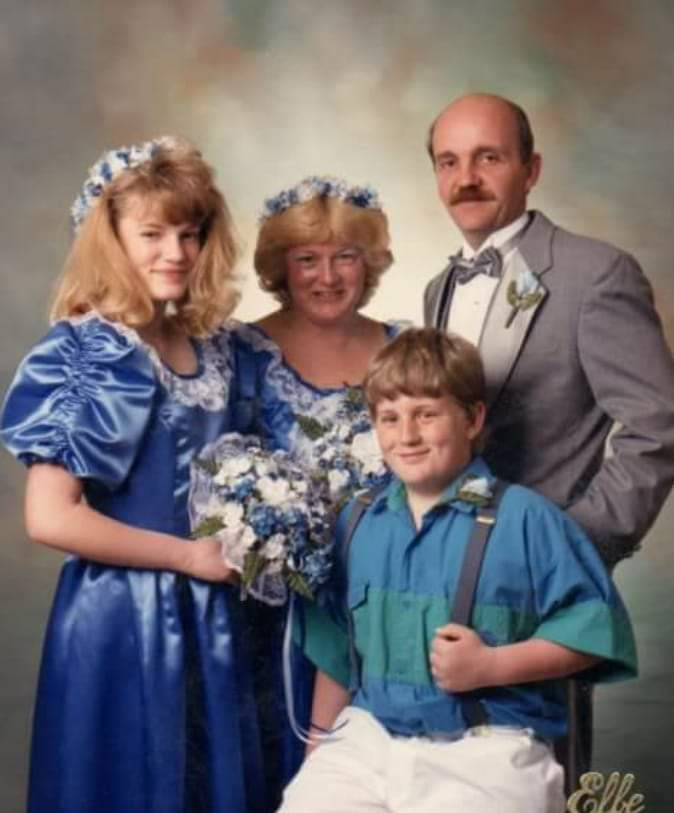When we lived in Ohio, a 95-degree day was the stuff of local news alerts and ice cream shortages. I’d step outside, inhale a lungful of wet, corn-scented air, and say, “Whew, it’s a scorcher.” Our air conditioning would wink at us, wheeze like an asthmatic pug, and promptly give up. Sometimes it was a Freon leak. Sometimes a clogged return vent. Sometimes it just needed “a little kick,” which is Midwestern for “percussive maintenance by someone in Crocs.”
But Ohio was child’s play. Ohio was one of those little ball pits at Ikea where your toddler gets a rash and a new worldview. Florida? Florida is The Show. Florida is what happens when the Earth leaves the oven on and forgets to set a timer. It’s the big leagues of atmospheric despair. It’s like getting called up from a single-A ballclub in Omaha to pitch against the Yankees in The Bronx, only every player is the sun, and every pitch insults your will to live.
Our first Florida house was a rental owned by a couple in the UK who’d apparently studied thermodynamics by licking the inside of a tea kettle. The AC unit never really worked. It leaked through the ceiling like the house was weeping with us. When we asked the owners to address the issue, they recommended we not use the AC at all, except for a few weeks in August. “That’s when it gets hot,” they said, from their foggy perch somewhere in Sussex.
He added, “If you want real heat, try a London heatwave sometime. Twenty-seven degrees!”
Celsius. They always say Celsius. Europeans measure things in Monopoly numbers. Kilometers, Celsius, kilograms, days since their last war with France. I did the math: 27 degrees Celsius is about 80 Fahrenheit.
“That’s what we try to cool it down to,” I told him. “In winter.”
Our next house was another rental. The owner lived just up the street and fancied himself a DIY savant, the kind of man who believes duct tape, twine, and faith can build a bridge. This would have been fine, except he was in New Jersey for most of the year. At one point, our AC had been dead for two weeks. When he finally stopped by, he discovered the filter was the wrong size and lectured me on the importance of using proper supplies.
“You’re the one who installs the filters, dumbass,” I reminded him. “You explicitly told me not to intervene.”
“Oh,” he said, as if meeting me for the first time. Then he vanished to Canada for three weeks. We called a service. Again.
Eventually, we bought a house. This is the part of the story where hope flutters in like a moth toward a porch light. It’s also the part where that moth bursts into flames.
The windows were bad from the start. Insulation? A suggestion, not a feature. Our AC unit sounded like a 747 crash-landing into a Walmart parking lot. It leaked. The ductwork came undone like five-year-olds at a birthday party, expecting candy from a paper mâché piñata. The inside coil clogged up. We fixed it again and again, each repair a whisper of impending doom. It had that familiar feeling you get with an elderly pet. No one says anything, but everyone starts googling cremation options.
Two weeks ago, the drain pan started leaking. Again. We cleaned the coil. Flushed the line. Sacrificed a goat. Nothing helped. A tech came by and said it needed an acid wash, which – let’s be honest – sounded more like a Metallica song than a maintenance plan. I pictured the xenomorph from Aliens melting its way through our coil, hissing with approval.
We scheduled the wash for Friday morning.
Last night, the external unit let out a sound I can only describe as a scream from the soul of a wounded wildebeest. Then it clicked twice, like it was trying to remember something. and went silent
This morning, the technician gave us the verdict: Dead. Not “resting,” not “in need of parts.” Just Dead.
And so, we will now spend the GDP of a small European nation (one of those tiny ones that make goat cheese and resentment) on a new AC system. Hopefully, it will bring peace, if not to the world, then at least to our living room. The cool comes on Tuesday.
Unless, of course, it doesn’t. This is Florida, after all. Where the lizards outnumber the thermostats, and your only true weather forecast is: “moist.”















